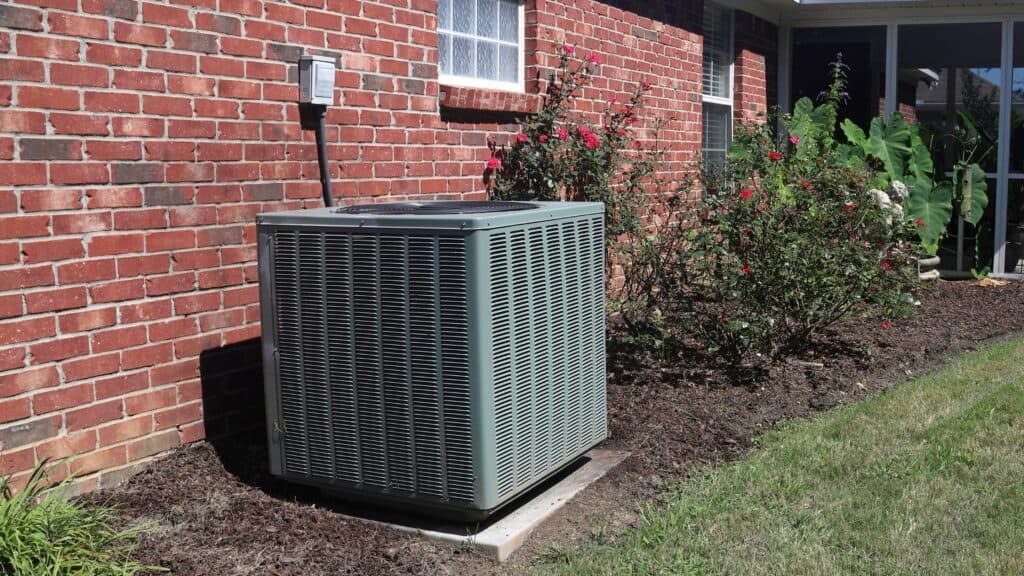Regular HVAC maintenance is necessary to ensure that the HVAC system remains running in optimal conditions. HVAC stands for Heating, Ventilation, and Air Conditioning. It utilizes various kinds of technologies in order to purify the air and manage its temperature and humidity.
HVAC is a compilation of systems that basically move air between indoor and outdoor areas in order to modify air conditions. This ensures that the temperature remains optimal inside. Air quality plays a huge part in ensuring the comfort of the occupants as well as the productivity of the occupants in workplaces.
HVAC is an advanced system; its purpose is not limited to just cooling or warming the air but the system is designed to improve the quality of air.
How Do HVAC Systems Work
The ventilation process involves taking air from outside a room or from within the room and moving it somewhere else.
Natural ventilation is a process that occurs in most homes – where air moves in and out of rooms through openings like windows and doors. This movement of air allows for the exchange of gases which in turn replenishes the oxygen level indoors and moves any unwanted odors, carbon dioxide, and excessive moisture outdoors.
In spaces that are closed off and tightly sealed, natural ventilation is not possible and in these cases, mechanical ventilation is required.
Once the air is pulled into the HVAC system, it is moved through various filters where dust particles and allergens are removed. Depending on the temperature requirement, the air is either heated or cooled. Only after the air is cleaned and set to the required temperature, it is sent to a room.
Types Of HVAC System

Basically there are four different kinds of HVAC systems:
1. Ductless HVAC
Compared to central air conditioning or heating systems, this kind of HVAC is more energy efficient. This HVAC system does not have ducts and therefore there is no friction when the air is being distributed.
Components Of HVAC System:
- A condensed fan coil
- A thermostat to control the temperature
- Air filters
2. Hybrid HVAC
This kind of HVAC has temperature sensors that detect changes in surrounding temperatures and automatically adjust to cooling or heating modes depending on the temperature set on the thermostat. This HVAC system is also known as the hybrid heating system as they are the most energy efficient during the winter season.
Parts Of An HVAC System:
- A furnace fuelled by either gas or oil
- Filters and devices to improve air quality
- Ducts to distribute the air
3. Packaged HVAC Systems
Such systems are best for buildings that have limited indoor spaces. They can be installed easily. Since these systems are installed outside, they are subjected to extreme conditions and can also be damaged easily.
HVAC System Parts:
- Tools to improve air quality
- Thermostat for controlling the temperature and system
4. Split HVAC
It is one of the most widely used HVAC systems since it is not only energy efficient but also cost-efficient. Some components are installed within the vicinity of the building while others are installed outside the building. This system diverges into two units – heating and cooling units. The system is not easy to install.
HVAC System Components:
- A pump used for heating and an air conditioner
- A thermostat on which temperatures can be programmed so that the temperature is controlled automatically
Benefits Of Regular HVAC Maintenance
A monthly HVAC system maintenance plan will ensure the following:
- Reduces Energy Bills
An HVAC system that is not well-maintained will cost you immensely in the future if the HVAC’s efficiency is compromised.
- Reduces Maintenance Costs In The Long Run
Regular and periodic maintenance ensures that any impending issues are sorted out before they turn into bigger problems.
- The HVAC System Will Last Longer
Timely and regular maintenance is a way to ensure that all the components of the HVAC system require less repair and last longer.
- Better Quality Of Output Air
An HVAC system that is properly maintained will have better working filters leading to better air quality.
HVAC Maintenance Best Practices
- You should change filters regularly (every 60 – 90 days).
- Make sure the outdoor unit is protected against harsh weather and debris like leaves are removed. You can also investigate ways to cover the units but make sure that the cover does not impact the efficiency of the unit.
- Ensure that the refrigerant lines of the HVAC (carrying the cooled or warmed air) are in perfect condition. If they are damaged or worn out, it could lead to high inefficiencies.
- Remove any buildup of algae or mold by mixing bleach with water and pouring it down the condenser drain.
- Keep an eye out for the quality of the blades of the fan. If they are worn out or rusted, they should be replaced before they cause serious damage.
